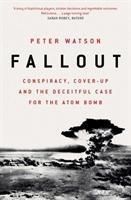Peter Watson
autor
The Great Divide
In 15,000 B.C. early humankind, who had evolved in Africa tens of thousands of years before, and spread out to populate the Earth, arrived in Siberia, during the Ice Age. Because so much water was locked up at that time in the great ice sheets, several miles thick, the levels of the world's oceans were much lower than they are today, and early humans were able to walk across the Bering Strait, then a land bridge, without getting their feet wet, and enter the Americas. Then, the Ice Age came to an end, the Bering Strait re-filled with water, and humans in the Americas were cut off from humans elsewhere in the world. This division - with two great populations on Earth, each oblivious of the other - continued until Christopher Columbus 'discovered' America just before 1500 A.D. This is the fascinating subject of THE GREAT DIVIDE, which compares and contrasts the development of humankind in the 'Old World' and the 'New' between 15,000 B.C. and 1500 A.D. This unprecedented comparison of early peoples means that, when these factors are taken together, they offer a uniquely revealing insight into what it means to be human. THE GREAT DIVIDE offers a masterly and totally original synthesis of archaeology, anthropology, geology, meteorology, cosmology and mythology, to give a new shape - and a new understanding - to human history
Vypredané
25,65 €
27,00 €
Convergence
Convergence is a history of modern science with an original and significant twist. Various scientific disciplines, despite their very different beginnings, and disparate areas of interest have been coming together over the past 150 years, converging and coalescing, to identify one extraordinary master narrative, one overwhelming interlocking coherent story: the history of the universe.
Intimate connections between physics and chemistry have been revealed as have the links between quantum chemistry and molecular biology. Astronomy has been augmented by particle physics, psychology has been increasingly aligned with physics, with chemistry and even with economics. Genetics has been harmonised with linguistics, botany with archaeology, climatology with myth. This is a simple insight but one with profound consequences. Convergence is, as Nobel Prize-winning physicist Steven Weinberg has put it, ‘The deepest thing about the universe.’
This book does not, however, tell the story by beginning at the beginning and ending at the end. It is much more revealing, more convincing, and altogether more thrilling to tell the story as it emerged, as it began to fall into place, piece by piece, converging tentatively at first, but then with increasing speed, vigour and confidence. The overlaps and interdependence of the sciences, the emerging order that they are gradually uncovering, is without question the most enthralling aspect of twenty-first-century science.
Vypredané
12,30 €
12,95 €
Fallout
Between December 1943 and August 1944, Franklin Delano Roosevelt and Winston Churchill ignited the Cold War, a superpower rivalry that would dominate the world over half a century, by building an atomic bomb and excluding their Russian allies. Peter Watson tells the pulse-pounding story of how two atomic physicists tried to counter this in two very different ways. While Niels Bohr sought to convince President Roosevelt and Prime Minister Churchill to share their nuclear knowledge with Joseph Stalin, nuclear scientist Klaus Fuchs, a German Communist emigre to Britain, was leaking atomic secrets to the Soviets in a rival attempt to ensure parity between the superpowers. Neither succeeded in preventing the World War II allies from unleashing the atom bomb on the world.
Fallout proves that the atomic bomb was not needed, and was made as a result of a series of flawed decisions. The Americans did not tell the UK that the atomic research was compromised by Soviet spies; the British did not tell the Americans that in 1943 they knew for sure that Germany did not have a nuclear bomb program. Neither country admitted to the scientists developing the bomb that it would never be used to counter the (non-existent) German nuclear threat. Had the scientists known, many of them would have refused to complete work on the bomb.
This story shows how politicians fatally failed to understand the nature of atomic science and, in so doing, exposed the world needlessly to great danger, a danger that is still very much with us.
Vypredané
12,30 €
12,95 €





